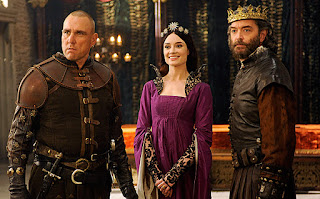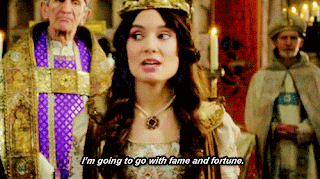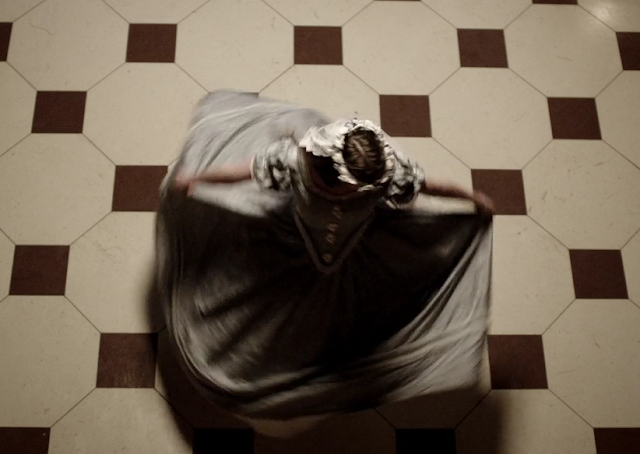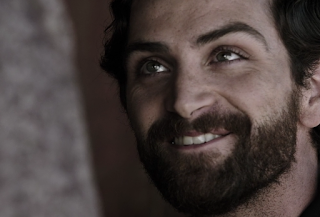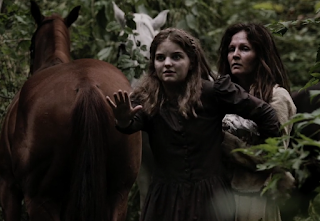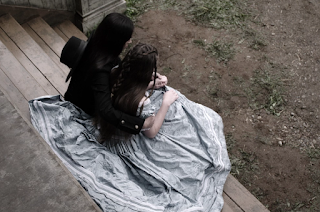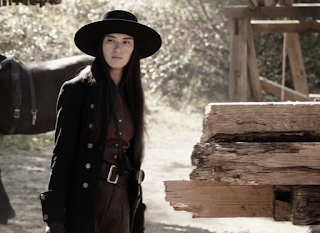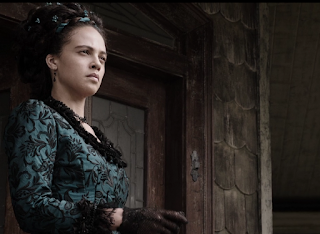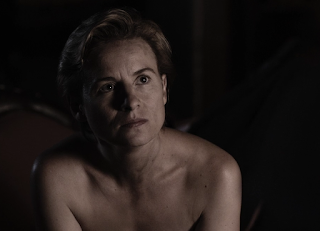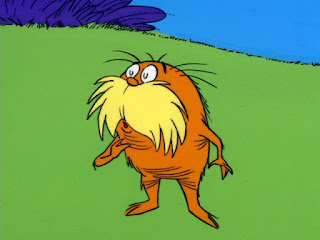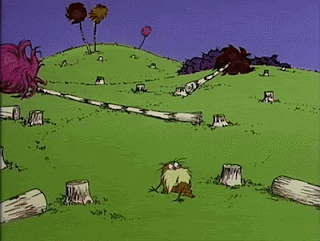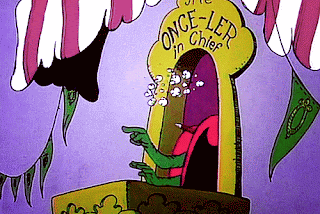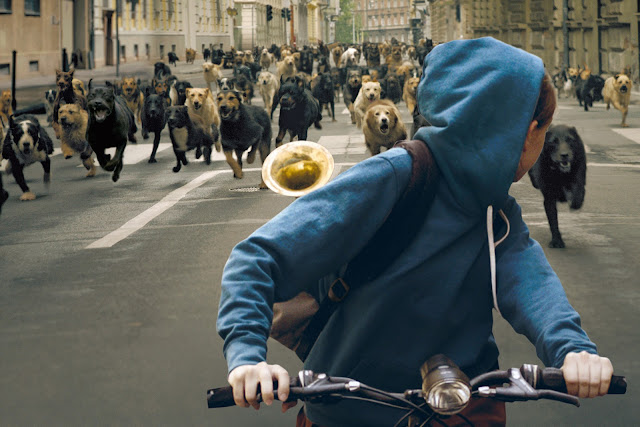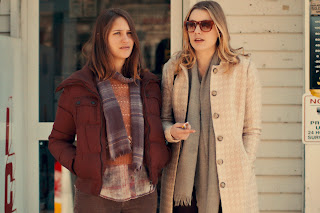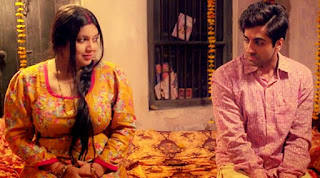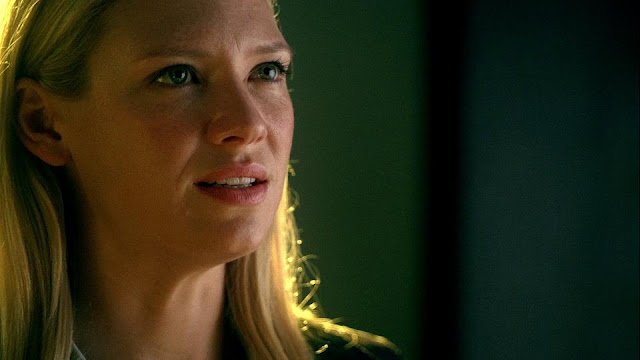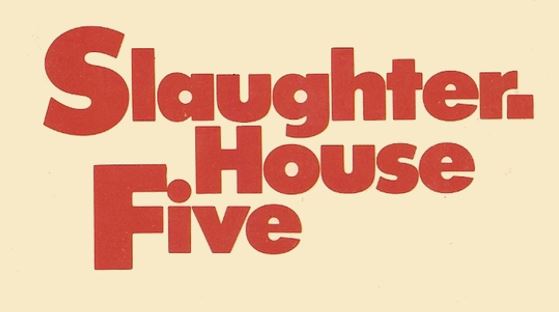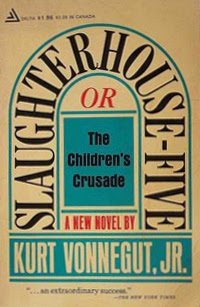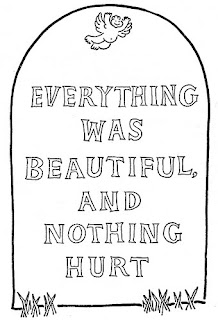Chickadees, in all the excitement of the Undies and this other project I'm working on that shall remain nameless and Jessica Jones and Agent Carter and all that goodness, it comes to my attention that I have been remiss in my duties to you all. I forgot to tell you that Galavant is back!
Admittedly not for very long - eight out of the ten episodes in this season have already aired and are available on Hulu, while the final two episodes air on Sunday - but still. There's a little time left before this show disappears back into the swirling vortex of being probably cancelled, and while it's still around I think we ought to take a moment and look at the woman who must be the single most surprising character in the whole show: Madalena.
Madalena, first introduced as your standard damsel in distress, very quickly subverts her role by being, well, not at all in distress. Furthermore, as the seasons go by, Madalena is quickly turning into a compelling and hilarious portrait of a woman who is both ahead of her time and simultaneously behind it.
As the woman responsible now for like three different wars and a character who intentionally betrays our assumptions about her, Madalena is interesting and culturally relevant. She's the answer to all the Disney princesses wrapped up in a gorgeous dress and a killer singing voice. But, even better, she's kind of a super feminist character. When you get to know her, that is.
Before we get too far, though, here's what Galavant is about. I feel safe assuming that most of you probably aren't caught up on the show - it flies very very far under the radar.
Galavant, now in its second season on ABC, is a half-hour comedy musical parody of life in the middle ages. Yeah, that's a mouthful, but the premise works better than you might think. Basically, it's a musical sendup of the tropes we're used to seeing in standard fantasy fiction: think Spamalot/Monty Python and the Holy Grail or Robin Hood: Men in Tights. That kind of deal, but with more singing.
The show's first episode starts off very standard, with the narrator singing to us about a "great hero known as Galavant" (Joshua Sasse) who has a lady love, Madalena (Mallory Jansen). They're all over each other until one day the evil King Richard (Timothy Omundson) sees Madalena, wants her, and kidnaps her to be his bride. It's up to Galavant to storm the castle, stop the wedding, and save the day! All standard fantasy stuff so far, right? Well, the subversion comes when Galavant appears just in time to stop the wedding, only for Madalena to turn him down. She's not in love with the King or anything, she's just more interested in being rich and a queen than she is in "getting fat and pregnant and growing my own food" with Galavant.
Please bear in mind, this happens literally five minutes into the first episode. We then skip a year into the future to find that not only is Madalena not regretting her choice, she's actually a more despotic ruler than Richard ever was. She's terrified her husband into submission, refused to consummate the marriage but is totally banging the court jester, and convinced their nation to invade neighboring Valencia so she can her hands on a priceless jewel.
That's right, Madalena isn't the damsel in distress in this story, she's the dragon.
The plot of the season actually comes when Galavant (who spent the year after getting dumped falling slowly into a keg of beer) decides to help the noble Princess Isabella of Valencia (Karen David) reclaim her country and kick out Richard and Madalena.
Except actually Isabella is under secret orders from King Richard to bring Galavant there so he can kill him, and it's all very convoluted but very fun.
Anyway, the season actually ends (spoilers for something a year old) with Madalena deposing her husband in order to marry his brother, a more ruthless warlord, then stabbing him in the back and seizing the country for herself, promoting Richard's brutal bodyguard, Gareth (Vinnie Jones), to her co-ruler. The second season is about Gareth and Madalena figuring out how to rule together while slowly falling into the funniest and most awkward love that two psychopaths can have for each other.
Make no mistake, by the way, because Madalena really is a terrifying character in the best possible way. Not only does she go from being a kidnapping victim and unwilling bride to one of the most powerful people in all the land in the space of about a year, she does it while turning the tables on a man who has every power to have her executed and while emotionally destroying him and usurping his regime. I mean, when she banishes Richard no one goes with him, not even Gareth - that's how good she is. Or, bad, as the case may be.
What's even funnier is that none of the other characters really seem to get comfortable with how evil Madalena actually is. Galavant and Richard, despite both knowing full well how awful she can be, have a really hard time accepting that Madalena doesn't care about them at all and doesn't need them to save her. She doesn't need anyone to save her. She lands on her feet.
The reason Madalena is so fun and interesting is exactly this: Madalena never needs rescuing because in all reality, she's the scariest person in every room. She might not have the brute strength needed to kill everyone, but she has the emotional manipulation required to get someone else to do it for her. She's vicious and mean and cunning and paranoid and narcissistic and generally a really ugly person inside, which is why I like her.
I mean that very seriously. I like Madalena precisely because she has very few if any redeeming qualities. I like her because there's something so refreshing in a female character who is originally set up to be sweet and nice and wonderful but who turns out to be, well, a bitch. And not a bitch in a sexy way, just a horrible human being. We're in a culture where the idea that women can be awful without the story being sexist still feels transgressive. And yet Galavant manages to pull off making its biggest villain out of the woman we all thought was the hero's one true love.
Oh, and I should also mention that I really like how unabashedly sexual Madalena is. One of the big running jokes of the first season is how King Richard thinks that Madalena has taken a vow of chastity and that's why he can't have sex with her, when in reality she is screwing everyone else. She just doesn't like him. After this finally comes out and Richard is sad and moping about it, Madalena doesn't let it slow her down. She just stops hiding what she's doing.
Again, there's something so satisfying in a female character who breaks all the rules we have for women in these kinds of stories. In our normal stories, Madalena should be sad or miserable or regret leaving Galavant, but she doesn't. In a normal story, Madalena would be punished for all the crap she pulled. Here she just keeps getting more and more power. In a normal story we're told that Madalena is a cautionary tale and that something horrible happened to make her the way she is. Here the closest thing she has to a tragic backstory is growing up poor and being made fun of this one time.
In other words, I like Madalena because she's everything we're told female characters aren't supposed to be. She isn't nice or kind or good or secretly sentimental. She doesn't feel bad about that either. Madalena has gone through her entire life believing that emotions are for the weak - at one point she tells Galavant that she loves him "as much as someone like me can love anyone."
So, like, not a lot. When she eventually falls for Gareth, a lot of the humor comes from how confused both of them are about how to go about being romantic with another person they don't want to destroy.
But most of the humor comes from subverting the idea that a pretty young woman in a fantasy story must obviously be the damsel in distress. She must clearly not be in control of her life and she must be in need of rescuing by some big macho hero guy. The whole first season of Galavant is built on this concept. Galavant only agrees to help Isabella because she tells him that Madalena wants him back. The idea that his damsel is distressed is the only thing powerful enough to get Galavant out of his funk.
That is why I love the slow dawning realization on the audience and on the characters that this really isn't the case. We're so used to women's storylines being dictated by their relationships to the male characters that it's genuinely hard to recognize when one isn't but that's the case here. Hell, Madalena even sings an entire song to herself at one point about how she is the only person wonderful enough to keep up with her and how she's basically her own love interest. Madalena isn't here for your hero crap, she's got a country to usurp and treason to scheme.
 She's not a good person, and that's great. Madalena being awful reminds us that women are people too - we can be just as horrible and bad and immoral as any man. Madalena is kind of the big bad in Galavant, and that the hero's ex girlfriend who he rode off to save becomes the woman he's desperately fleeing makes everything much more fun.
She's not a good person, and that's great. Madalena being awful reminds us that women are people too - we can be just as horrible and bad and immoral as any man. Madalena is kind of the big bad in Galavant, and that the hero's ex girlfriend who he rode off to save becomes the woman he's desperately fleeing makes everything much more fun.I hope you all tune in to watch Galavant on Sunday, if for no other reason than because I'd really like this show to be renewed, but I also want you to see this for yourself. Appreciate the wonder that is Madalena and the obvious fun that Mallory Jansen is having playing her. You won't be disappointed.
 |
| I love you. |


